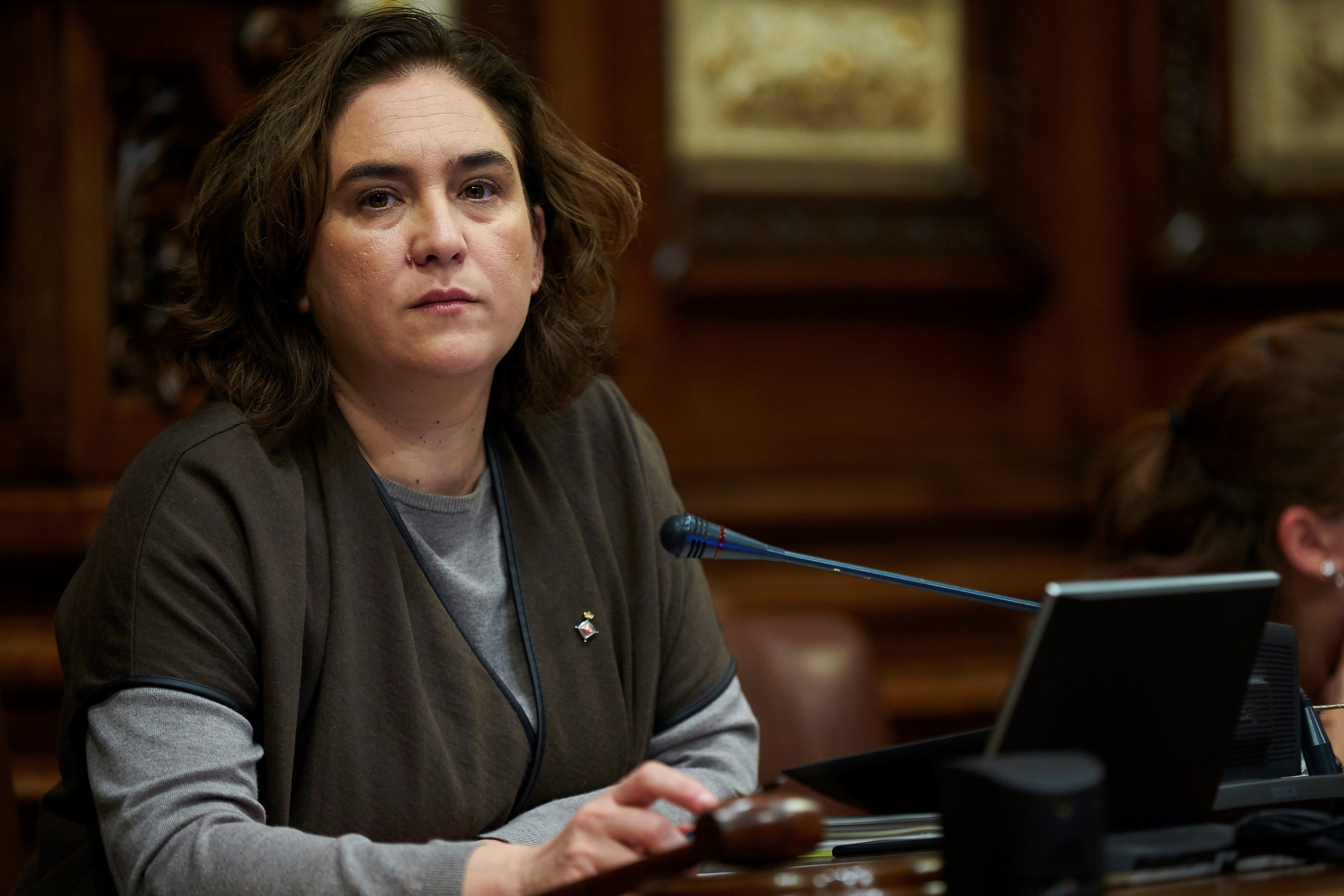The Catalan Republican Left (ERC) would win the municipal elections in Barcelona if they were held now. This is the result extracted from the latest six-monthly poll commissioned by the Barcelona City Council, which shows the pro-independence ERC neck and neck with current mayor Ada Colau's Barcelona in Common (BComú) group: the party headed by Alfred Bosch would obtain 16.5% of the votes, while Colau would achieve 16.3% of popular support.
The Republicans would thus attract the majority of the pro-independence vote in the Catalan capital, a significant increase in support with respect to the municipal elections of 2015, which was already ERC's best result in a Barcelona city election (11% of the vote). As for BComú, it would achieve support similar to what it obtained in the May 2015 election, when the group won 15.2% of votes.
Behind the race for first place between ERC and BComú, is the Catalan Socialist Party (PSC), with 9.3% of votes, followed by Citizens (Cs) with 6.4%, the Catalan European Democratic Party (PDeCAT) with 5.8%, the CUP (3.6%) and the PP (1%).
Regarding the approval ratings of political leaders, the highest valued is again Ada Colau, with a rating of 5.3 and approval from 67.1% of voters. The only other leader who reaches a "pass" mark is the ERC's Alfred Bosch (5.2). The lowest ranked leader is Alberto Fernández, of the PP, with 2.4, the worst score in the history of the poll.
Unprecedented result
The poll, carried out between 23rd November and 4th December, is politically unprecedented for two reasons: on the one hand, because for the first time it gives victory to ERC; on the other hand, it is only the second time since the poll began that an opposition party has beaten the party occupying the mayoral office. The previous time this occurred was in 2010, during the mandate of Barcelona's last Socialist mayor Jordi Hereu, when the study predicted the victory of Xavier Trias which occurred one year later.
Barcelona deputy mayor Gerardo Pisarello commented that the survey figures "have been affected" by the political climate in Catalonia and by the closeness of the Catalan elections on 21st December. Moreover, Ada Colau's deputy explained the good results of ERC due to their attraction of votes from the other main pro-independence party, the PDeCAT led by Xavier Trias. ERC sources contacted were content with the result but pointed out that it is "just an indicator" and means they can "tackle the work ahead with good prospects" for the next election year, in 2019.
The PDeCAT, who experienced a serious fall, rejected the importance of the voting figures that would place them in fifth place in a hypothetical municipal election. PDeCAT spokesperson Jaume Ciurana highlighted that the survey is based on a sample of 800 people, and asserted that therefore the results achieved in the December election are more important. "There is a political space there and the parties have to work to use it electorally”, explained Ciurana.
Against 155 and unilateral moves
An overwhelming majority of Barcelona residents reject the path taken by the Spanish government in the last few months. Three out of every four (74.5%) are against the application of article 155 (under which Spain has imposed direct rule on Catalonia) and even more, 80.5%, are opposed to the imprisonment of pro-independence political leaders. However, as Pisarello himself pointed out, 62% of Barcelona citizens are also opposed to unilateral action to achieve independence.
A similar mix is apparent in a Barcelona that is divided on the independence question: 33.6% of those asked opt for an independent Catalonia, while 27.6% prefer to be part of a reformed federal Spain. However, only 19% prefer to maintain the current regional status of Catalonia as a Spanish autonomous community.
Graph: Barcelona residents' rejection of different political situations (Application of Article 155, Imprisonment of political leaders, Unilateral route to independence)
Catalonia's status, the main problem
The survey indicates that the Catalan political situation is the main worry of Barcelona residents, mentioned by 11.3% of those interviewed, followed by politics in general, cited by 9.6%. Overall, 20% of residents consider that the Catalan political context is their greatest concern.
Among other standout aspects, apart from the Catalan question, pollution (9%) is one of the concerns that has grown most with respect to previous surveys, while tourism - Barcelona's most important problem in the previous poll - has undergone a significant fall, slipping to fourth position, at the same level as unemployment and labour conditions.

